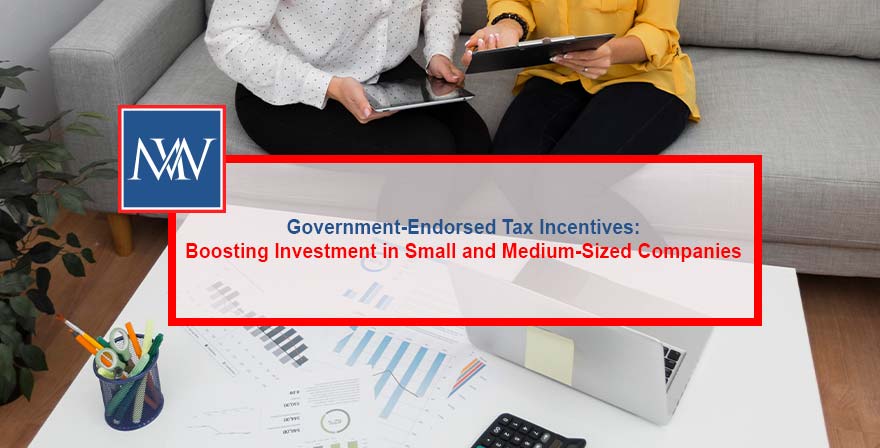
Government-Endorsed Tax Incentives: Boosting Investment in Small and Medium-Sized Companies
For small companies, obtaining tax-efficient funding involves leveraging various schemes and incentives that minimize tax liabilities while maximizing capital inflow. These schemes are designed to attract investment by offering tax reliefs to investors, making it more appealing for them to invest in small and growing businesses.
Several government-endorsed tax incentives have been implemented to encourage private business investment. These incentives offer income tax reductions, capital gains tax (CGT) deferrals,, and exemptions. Examples of such schemes are outlined below:
Enterprise Investment Scheme (EIS)
The EIS provides tax relief to individual investors who buy shares in smaller, high-risk companies. EIS investments are typically in high-risk companies, with a significant risk of losing the invested capital. Importantly, subject to any future legislation, the relief will cease on April 6, 2023.
Income tax relief is at 30% on the amounts subscribed to qualifying companies and no CGT arises from the disposal of the shares. If the investment fails, the investor can claim loss relief. The shares generally have to be held for three years, and there are stringent conditions concerning the type of ‘qualifying company’, which is deemed a ‘qualifying investor’ and the mechanics of the investment itself. For example, the investor must not be ‘connected’ to the company, and the shares must be new, usually paid for in cash, and retained for at least three years. There is a restriction to the amount that an issuing company can raise through all venture capital schemes to include EIS of £5 million per year (£10 million per year for ‘knowledge-intensive’ companies). The number of companies that can raise finance in this way has shrunk due to the introduction of conditions concerning the company’s age, as the investment must be made within seven years of the company’s first commercial sale (ten years for ‘knowledge-intensive’ companies).
Seed Enterprise Investment Scheme (SEIS)
This scheme is broadly similar to the EIS but is aimed at start-up companies (with less than 25 employees and assets of less than £350,000) whose trade is less than three years old. The main difference is that the income tax relief is 50%, but the maximum permitted investment is far smaller (£200,000 per tax year). The issuing company is also limited to how much funding it can raise—to just £250,000. The investor can claim 50% income tax relief on the amount invested, up to £100,000 per tax year and shares are exempt from CGT if held for at least three years. A loss can be offset against the investor’s income, and should an investor dispose of an asset, reinvesting the gain in SEIS shares, up to 50% of the reinvested gain is exempt from CGT.
Equity crowdfunding
As detailed above, the main entry routes into investment in individual companies typically involve significant investment, often £100,000 or more. Equity crowdfunding investors typically put £1,500 to £4,000 into a single business, and sometimes much less.
Equity crowdfunding offers tax relief via SEIS and EIS. CGT or income tax loss relief, is claimable if the equity shares report a loss or become devalued.
Platform examples include Seedrs and Crowdcube.
Practical point
For start-ups and SMEs seeking external funding, utilizing tax-efficient investment schemes can be advantageous. These schemes make a company more attractive to potential investors and provide a vital source of funding at a cheaper cost than asking the bank for a loan.
Partner notes
https://www.gov.uk/guidance/venture-capital-schemes-apply-for-the-enterprise-investment-scheme
HMRC Helpsheet 393 – Seed Enterprise Investment Scheme – Income Tax and Capital Gains Tax reliefs
HMRC Helpsheet 341 – Enterprise Investment Scheme – Income Tax relief
s156 Income Tax Act 1970
For more information, Book a Free Consultation
Need Accountancy Support?
For information on bespoke training, or if you have any other questions for Makesworth Accountant, please fill in your details below
















 151
151